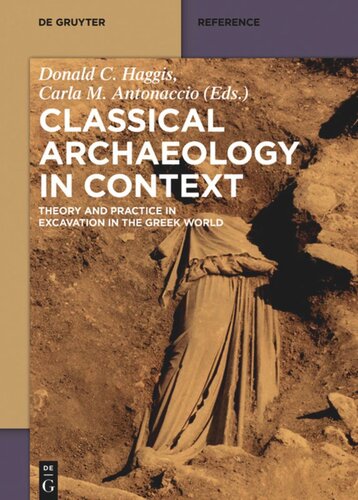

Most ebook files are in PDF format, so you can easily read them using various software such as Foxit Reader or directly on the Google Chrome browser.
Some ebook files are released by publishers in other formats such as .awz, .mobi, .epub, .fb2, etc. You may need to install specific software to read these formats on mobile/PC, such as Calibre.
Please read the tutorial at this link: https://ebookbell.com/faq
We offer FREE conversion to the popular formats you request; however, this may take some time. Therefore, right after payment, please email us, and we will try to provide the service as quickly as possible.
For some exceptional file formats or broken links (if any), please refrain from opening any disputes. Instead, email us first, and we will try to assist within a maximum of 6 hours.
EbookBell Team

4.1
30 reviewsThis book compiles a series of case studies derived from archaeological excavation in Greek cultural contexts in the Mediterranean (ca. 800-100 B.C), addressing the current state of the field, the goals and direction of Greek archaeology, and its place in archaeological thought and practice. Overviews of archaeological sites and analyses of assemblages and contexts explore how new forms of data; methods of data recovery and analysis; and sampling strategies have affected the discourse in classical archaeology and the range of research questions and strategies at our disposal. Recent excavations and field practices are steering the way that we approach Greek cultural landscapes and form broader theoretical perspectives, while generating new research questions and interpretive frameworks that in turn affect how we sample sites, collect and study material remains, and ultimately construct the archaeological record. The book confronts the implications of an integrated dialogue between realms of data and interpretive methodologies, addressing how reengagement with the site, assemblage, or artifact, from the excavation context can structure the way that we link archaeological and systemic contexts in classical archaeology.